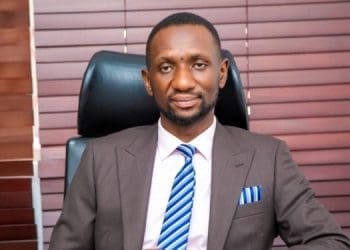Ghana’s Parliament will on Monday, June 16, 2025, begin vetting seven nominees appointed by President John Dramani Mahama for elevation to the Supreme Court, in what is expected to be a politically charged and widely watched process.
The vetting, which will be conducted by the Appointments Committee of Parliament, will continue through to Wednesday, June 18.
The nominees, all currently serving as Justices of the Court of Appeal, include Justice Sir Dennis Dominic Adjei, Justice Gbiel Simon Suurbaareh, Justice Senyo Dzamefe, Justice Kweku Tawiah Ackaah-Boafo and Justice Philip Bright Mensah.
The rest are: Justice Janapare Bartels-Kodwo and Justice Hafisata Amaleboba.
A statement from the Media Relations Department of Parliament confirmed that the vetting process will assess each nominee’s qualifications, judicial experience, and legal philosophy to determine their suitability for the apex court.
Presidential nomination under Article 144
The appointments are being made under Article 144 (2) of the 1992 Constitution, which empowers the President to appoint judges to the Supreme Court in consultation with the Council of State and with the approval of Parliament.
President Mahama’s decision to nominate seven justices at once has drawn both applause and skepticism.
While legal analysts say the move will help strengthen the capacity of the judiciary, opposition voices have questioned the motive and timing.
Vetting Committee to Scrutinize Credentials
The Appointments Committee, chaired by First Deputy Speaker Bernard Ahiafor, will lead the public hearings.
The Committee comprises 11 members — seven from the ruling National Democratic Congress (NDC) and four from the opposition New Patriotic Party (NPP).
Key figures on the Committee include:
- Mr. Bernard Ahiafor (NDC) – Chairman
- Mr. Emmanuel Armah-Kofi Buah (NDC) – Vice Chairperson
- Mr. Alexander Afenyo-Markin (NPP) – Ranking Member
- Madam Patricia Appiagyei (NPP) – Deputy Ranking Member
- Mr. Mahama Ayariga (NDC) – Majority Leader and MP for Bawku Central
- Madam Agnes Naa Momo Lartey (NDC) – MP for Krowor
- Mr. Frank Annoh-Dompreh (NPP) – MP for Nsawam-Adoagyiri
- Mr. Patrick Yaw Boamah (NPP) – MP for Okaikwei Centra
- Mr. Shaibu Mahama (NDC) – MP for Daboya-Mankarigu
- Mr. Alhassan Umar (NDC) – MP for Zabzugu
- Mr. Kwame Governs Agbodza (NDC) – MP for Adaklu
The Committee is expected to question the nominees on landmark rulings, their understanding of constitutional law, and their judicial conduct on the bench.
Opposition flags “third-term agenda” concerns
The nominations have not gone without political backlash.
The opposition NPP has sharply criticized the move, accusing President Mahama of attempting to strategically reshape the Supreme Court ahead of the 2028 elections.
In a statement, a senior NPP official described the nominations as part of a veiled “third-term political agenda,” suggesting that the appointments could be aimed at securing long-term legal and political advantage.
This view, however, has been dismissed by legal experts aligned with the ruling party, who argue that the appointments are both constitutional and necessary given upcoming judicial retirements and the growing docket of the Supreme Court.
Judiciary in the spotlight
The vetting process is expected to attract significant public attention as Ghanaians weigh the integrity and independence of the judiciary at a critical juncture in the country’s democratic development.
Observers say the outcome will have lasting implications, not only for the Supreme Court’s composition but also for how future presidential nominations are evaluated amid political transitions.
The final approval of the nominees will rest with the full Parliament following the Committee’s recommendations.
Should all seven be endorsed, President Mahama will have made one of the most consequential judicial appointments in recent memory — a move likely to influence Ghana’s legal landscape for decades to come.














